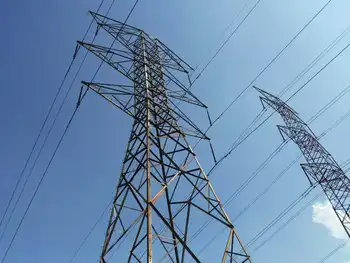Historic sit-down for Ontario, Quebec
By Globe and Mail
NFPA 70e Training - Arc Flash
Our customized live online or in‑person group training can be delivered to your staff at your location.

- Live Online
- 6 hours Instructor-led
- Group Training Available
Several cabinet ministers from the two provinces will gather around the same table in Quebec City, where they will discuss a number of topics of mutual interest, including trade between the two provinces, their struggling manufacturing sectors and electricity transmission, government officials said. It will be the first time the two provinces have held a joint cabinet meeting.
But the meeting will be about much more than the long list of items the two provinces have been working on for months, government sources said.
Mr. McGuinty and Mr. Charest need each other in pursuing their own political agendas with the Harper government. By presenting a united front on issues they have in common, they plan to send a message to Ottawa that the leaders of Canada's two largest provinces have formed a formidable alliance, one that Prime Minister Stephen Harper's minority government may find difficult to ignore.
"Both Premier Charest and Premier McGuinty see eye to eye on a number of issues across the board that affect Quebec and Ontario," said a senior Ontario government official. "I think it is significant that you've got two of the biggest provinces, representing two-thirds of the population, standing up together and looking for ways to work together."
The two leaders will use the backdrop of the festivities for Quebec City's 400th anniversary to call attention to their own partnership. The meeting will open with a ceremony at a dinner on June 1 at the Chateau Frontenac, where Mr. McGuinty will present Mr. Charest with a plaque to commemorate the city's anniversary.
Planning for the meeting began in November, when Mr. McGuinty and Mr. Charest signed an agreement in Toronto, pledging to begin talks to remove trade barriers between the two provinces. That meeting signalled the beginning of their warmer relations.
Until then, the two leaders had often been at odds with each other, in particular over how Ottawa divvies up its riches to the provinces. But with the manufacturing sectors in Ontario and Quebec shedding thousands of jobs, the two are becoming closer allies in looking for ways to strengthen their weakened economies.
They want Mr. Harper to know that his government's laissez-faire economic policies, which favour tax cuts over financial aid for struggling sectors, run the risk of alienating voters in Canada's two largest provinces, the sources said.
Cabinet ministers from the two provinces will then meet on June 2, when they are expected to adopt a common strategy to pressure Mr. Harper to increase aid for manufacturers, Hugo D'Amour, Mr. Charest's press secretary, said from Bordeaux, France, where the Premier is promoting Quebec City's anniversary.
"We are co-operating in a bunch of sectors," Mr. D'Amour said.
The ministers will also work on eliminating trade irritants and harmonizing regulations to allow for a freer flow of trade between the two provinces, he said.
Ontario's energy needs and Quebec's desire to export hydro-electricity and eventually natural gas from the proposed Rabaska liquefied natural-gas terminal near Quebec City will be on the agenda, he said.
Hydro-Québec is building a new multimillion-dollar transmission line to Ontario to help meet that province's future energy needs.
Not all of Ontario's 28 cabinet ministers and Quebec's 18 ministers will be at the meeting. The agenda is still being finalized, but only those ministers who have an interest will be there, the senior Ontario government official said.
"The message we want to send is we are going to work with our most significant neighbour in the country to find ways of helping each other," he said.











